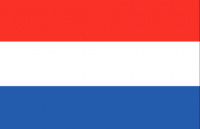
A 1981 Court ruling established broad and loose guidelines which would allow for non-prosecution of doctors who euthanized patients experiencing 'unbearable pain', having made a voluntary and conscious. This was superseded by a 2001 law, effective in 2002, predicated on a patient's suffering being "unbearable, with no prospect of improvement". Children as young as 12 can request death, and the legislation also does not exclude non-residents, despite efforts to claim that only Dutch residents are covered.
The statistics demonstrate a steep rise in the number of euthanasia cases since liberalisation through the courts and then legalisation. 4,188 notifications were received in 2012, with non-reporting standing at 23% in 2010, further undermining much-vaunted safeguards. Equally troubling are the continued and substantial rise in people dying through 'deep sedation' - sometimes called 'slow euthanasia' - and the numbers of those seeking euthanasia with dementia and with psychiatric problems.
Euthanasia deaths continue their relentless rise in the Netherlands
In this last week both Belgium and the Netherlands have taken further major steps regarding euthanasia for children.
Asked for evidence of the much-maligned 'slippery slope', EPC-E's Chair shocked British radio listeners with a Dutch protocol under which disabled babies can be euthanized.